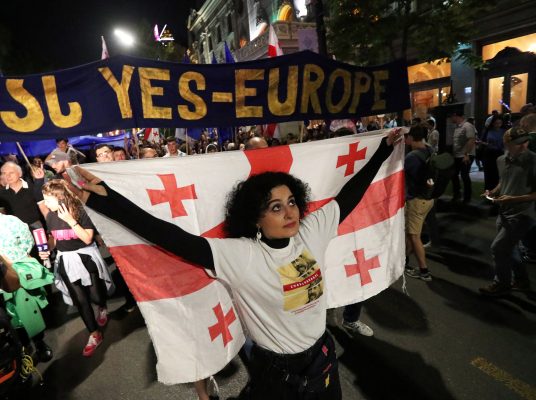The Belarusian Parliament has swiftly passed three sweeping laws that further restrict basic freedoms and deepen the country’s domestic political and international migration crises.
The first law introduces the so-called Single Voting Day, which effectively shifts the timeframe for the local elections from January 2022 to November 2023. Following the Russian model, which combines elections at various levels in the same poll, the Belarusian local elections will now also take place in conjunction with the parliamentary vote. The measure effectively robs the public of an election campaign that could have likely stirred up protests and given the chance to vote for anti-regime candidates.
Following the onset of the political crisis triggered by the theft of the presidential election in August 2020, the democratic opposition had hoped that local elections could become a springboard to promote new political activists who emerged in the wake of the protests. If the regime allowed at least a handful of fresh figures into local assemblies, that could become a potentially effective way to erode the regime from below.
The second law — “On the suspension of the agreement between the European Union and the Republic of Belarus on the readmission of persons residing without authorization” —releases Belarus from its obligation to re-admit persons entering the EU “in violation of the procedure for the entry, exit, stay and residence of foreign citizens and stateless persons.” The bill legalizes post-factum the Belarusian regime’s hybrid warfare practices aimed at destabilize neighboring European Union countries fueling discord within targeted societies.
Since July, the Lukashenka regime has been smuggling migrants from the Middle East and Africa into the EU in retaliation for the EU sanctions. Lithuania, which had provided a home for the Belarusian democratic movement and its leader Sviatlana Tsikhanouskaya, was hit first. In July alone, it reported over 2,900 illegal crossings from Belarus, and the number reached 4,000 by September 1. Later Poland became the target, with around 500 cases reported on a daily basis. EU home affairs commissioner Ylva Johansson said on October 5 that the bloc had registered over 6,000 illegal crossings from Belarus so far this year, up from 150 last year.
Both countries have reinforced their frontiers with extra border guards and fences, and adopted policies to turn migrants back. However, as Belarus is refusing to re-admit the migrants, the latter have found themselves caught in limbo, suffering from food shortages and cold weather. Five people have reportedly died.
Belarusian Interior Minister Ivan Kubrakou said that the adoption of the law is a “temporary measure” and that the “agreement will be resumed once the bilateral relations normalize.” Effectively, the regime is demanding the reversal of the sanctions policy. That is unlikely to happen, and indeed the EU is ready to propose the fifth package of sanctions in response to the border tensions over migrants. This opens the way to a long-term crisis, as Afghan refugees enter former Soviet Central Asian republics with close ties to the Lukashenka dictatorship.
Lastly, parliament has approved the first reading of an amendment to the criminal code that increases responsibility for activities “causing damage to the national security of Belarus” with imprisonment of up to 10 years. It also introduces a new criminal offence of calling for sanctions against Belarus with a maximum term of imprisonment of up to 12 years — higher than for some classes of murder. Anyone calling for sanctions on the Internet or by any other means can become liable under the new provisions.




